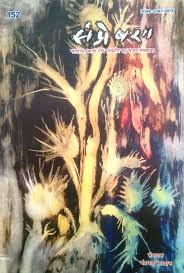CONTRIBUTION OF THE VEDAS AND UPANISHADS IN THE INDIAN KNOWLEDGE TRADITION
DOI:
https://doi.org/10.8476/sampreshan.v16i4.412Keywords:
Indian knowledge tradition, Vedānta, spiritual thought, Jñāna Yoga, Karma Yoga, Bhakti, varṇa system, yajña (sacrifice), social duties, monotheism, polytheism, nature worship, dialogue methodAbstract
The Vedas and Upanishads are foundational pillars of the Indian knowledge tradition. Their contribution is not limited to spiritual and philosophical thought but extends to a holistic view of life, science, culture, and moral values. The Vedas—Rigveda, Yajurveda, Samaveda, and Atharvaveda—form the core of this tradition. These are Śruti texts, considered divine and impersonal (apauruṣeya). The Vedas encompass not just religious rituals, but also principles related to astronomy, mathematics, medicine, environment, sociology, and ethical living. The hymns in the Vedas clarify the relationship between the individual and the cosmos. These mantras are directed toward both personal and collective well-being. The Vedas laid the foundation for cultural unity, ritual practices, and values in Indian society.
The Upanishads, which form the concluding part of the Vedas (Vedānta), aim to explore the mysteries of the soul (ātman), the Absolute (brahman), and the creation of the universe. Through great sayings (mahāvākyas) such as “Aham Brahmāsmi” (I am Brahman), “Tat Tvam Asi” (That thou art), and “Neti-Neti” (Not this, not that), they express the unity of the individual soul and the supreme reality. The Upanishads develop knowledge through dialogue and critical inquiry, laying the groundwork for scientific reasoning. They illuminate the path toward understanding the purpose of life, duty (karma), righteousness (dharma), truth, peace, and liberation (mokṣa).
In essence, the roots of Indian philosophy, yoga, Ayurveda, and astrology lie in the Vedas and Upanishads. These texts have guided not just the Indian subcontinent but the entire world toward wisdom, peace, and self-realization. The seeds of modern education, environmental balance, pluralism, and coexistence can be found in these scriptures.



